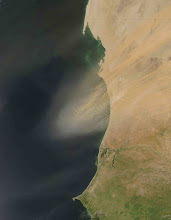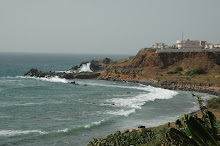 "We've watched from a distance as financial markets convulsed this fall. These headline events haven’t raised a single question or comment from our village friends who’ve never heard of Wall Street or a mutual fund.
"We've watched from a distance as financial markets convulsed this fall. These headline events haven’t raised a single question or comment from our village friends who’ve never heard of Wall Street or a mutual fund."Villagers don’t even have bank accounts in this cash economy. They don’t speak or read French so bank documents are unintelligible to them. Plus, banks charge so many fees that small accounts are not feasible financially.
"A different economy operates here. “Savings accounts” are the sheep and goats owned by every family. An emergency medical bill or a need to visit to a distant sick relative may prompt the sale of one or more male goats.
"Females are prized for increasing the size of the herd. The availability of grass and hay causes fluctuations in value with selling prices lowest during the rainy season when free grass is abundant. Prices are highest near the end of the dry season when all the grass has been eaten and the hay supply is at a minimum.
"The highest prices for large male sheep are just before Tabaski when each family deems it almost obligatory to kill and eat a sheep during the holiday that commemorates Abraham’s offering of Ishmael—according to the Koran. Tabaski takes place this year the second week of December so the supply of sheep in towns is growing daily.
"We are aware that the current economic challenges are affecting many of you...We also are tightening our chaaya genyo (pants tie-strings, as in our sweat pants)."





